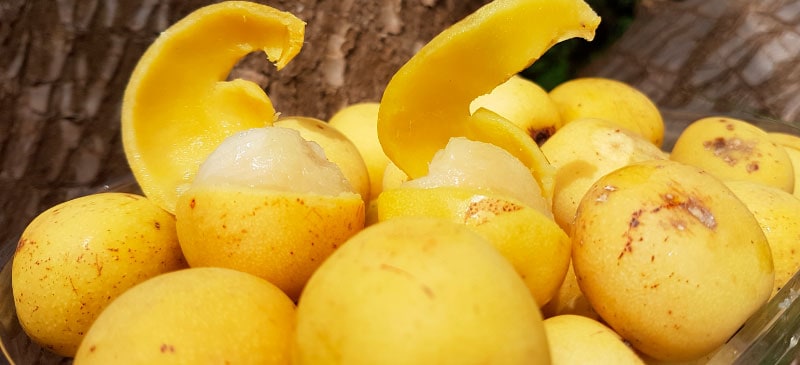This Dr. Axe content is medically reviewed or fact checked to ensure factually accurate information.
With strict editorial sourcing guidelines, we only link to academic research institutions, reputable media sites and, when research is available, medically peer-reviewed studies. Note that the numbers in parentheses (1, 2, etc.) are clickable links to these studies.
The information in our articles is NOT intended to replace a one-on-one relationship with a qualified health care professional and is not intended as medical advice.
This article is based on scientific evidence, written by experts and fact checked by our trained editorial staff. Note that the numbers in parentheses (1, 2, etc.) are clickable links to medically peer-reviewed studies.
Our team includes licensed nutritionists and dietitians, certified health education specialists, as well as certified strength and conditioning specialists, personal trainers and corrective exercise specialists. Our team aims to be not only thorough with its research, but also objective and unbiased.
The information in our articles is NOT intended to replace a one-on-one relationship with a qualified health care professional and is not intended as medical advice.
7 Marula Oil Benefits for Skin, Hair and Nails
October 6, 2022

Are you familiar with the exotic African oil whose popularity skyrocketed in the past 15 years with nearly 20 million U.S. dollars spent on it for cosmetic product manufacturing? It’s marula oil … and its demand in the beauty realm is for good reason.
What are the benefits of marula oil? For starters, it’s known for boosting skin health and appearance no matter your age or skin type (with a few precautions we’ll talk about later).
Is marula oil better than argan oil? It’s hard to say which oil is better than the other, especially since their desirable benefits are similar. It can just be a matter of personal preference, so it’s worth comparing argan facial oil to marula facial oil and seeing which one you prefer (or you just may like them equally)!
What Is Marula Oil?
Marula oil comes from the Sclerocarya birrea, or marula, tree, which is medium-sized and indigenous to South Africa. The trees are actually dioecious, which means there are male and female trees.
According to a scientific review published in 2012, the marula tree “is widely studied with regard to its anti-diabetic, anti-inflammatory, analgesic, anti-parasitic, antimicrobial, and antihypertensive activities.”
In Africa, many parts of the marula tree are used as ingredients in food and traditional medicine. The oil comes from the tree’s marula fruit.
Benefits
1. Is Nutrient-Rich and Anti-Aging
If you’re looking for a new face oil, you may want to try marula. One of the reasons many people love using a marula face oil is the fact that it’s highly absorbent. Can marula oil act as an effective face wrinkle treatment? It’s definitely possible with all of its many beneficial properties.
According to Joshua Zeichner, an assistant professor of dermatology at Mount Sinai Hospital in New York City, “It’s rich in essential fatty acids that mimic those that exist naturally in the outer layer of the skin. It also contains the antioxidants vitamin C, vitamin E and flavonoids.” He also points out that it’s a non-oily oil that absorbs quickly without a greasy feeling post-application.
However, if you breakout easily, rosehip oil may be a better choice for fighting fine lines and wrinkles. If you’re comparing marula oil vs. rosehip oil, rosehip is a less comedogenic (less skin-clogging) oil that is also well-known for its anti-aging properties.
2. Soothes Dry Skin
Another one of the top potential marula oil benefits is its ability to improve dry skin. In fact, marula oil just may be one of the best moisturizers for a dry face (or a dry body).
It contains beneficial oleic, palmitic, linoleic and stearic acids. It’s a top pick by a cosmetic dermatologist for dry skin because it’s excellent for decreasing redness while hydrating dry and/or irritated skin.
Plus, it’s rich in skin-boosting omega-6 and omega-3 fatty acids. Both omega-6 and omega-3 polyunsaturated fatty acids are key to normal skin function and a healthy skin appearance.
A clinical study published in 2015 took a look at the safety and efficacy of topical application of marula oil. What did the researchers find? Overall, it’s an oil rich in fatty acid that hydrates the skin, decreases transepidermal water loss and is non-irritating.
3. Boosts Hair Health
You may be interested in the marula oil benefits for hair. Similar to the way marula improves skin dryness, it can also do the same for hair. It’s not hard these days to find marula hair oil or marula oil shampoo and conditioner.
If you struggle with dry, frizzy or brittle hair, adding marula oil to your natural haircare regimen can help to decrease signs of dryness and damage without leaving you looking greasy (as long as you don’t use too much oil, of course).
Some people also use marula oil for hair growth. There isn’t any research to confirm this marula oil hair usage, but the oil certainly can nourish the scalp and hair.
4. Reduces Stretch Marks
Many people struggle with stretch marks, especially pregnant women. With its high content of fatty acids and antioxidants, marula oil can help to increase skin hydration and elasticity, possibly preventing unwanted stretch marks.
Of course, application of this nourishing oil should take place daily to avoid stretch marks or to improve the appearance of ones you already have.
5. May Decrease Acne (for Some)
You can read a marula oil review or article and find firsthand accounts of people finding marula oil treatment helpful for breakouts. You’ll also find many people warning not to use marula if you’re acne-prone.
Can you use marula oil for acne? In some cases, it may be a helpful natural addition to your skincare regimen if you’re struggling with breakouts, because adding oil to your skin can actually help to stop overproducing oil. Marula even appears on lists of the best facial oils for acne.
Will marula oil clog pores? Well, it has a comedogenic rating of 3–4 (on a scale of 1–5), which means it has a high likelihood of clogging pores. This doesn’t necessarily mean it will clog everyone’s pores, but if you don’t do well with coconut oil, then you likely won’t do well with this oil either. And it goes the other way too; if you find coconut oil agreeable and helpful, then marula will likely suit you well too.
6. Helps Scars
Is marula oil good for scars? Similar to the way it helps with stretch marks, this oil can also help to prevent scarring since it’s rich in essential fatty acids as well as skin-boosting vitamins C and E. You can use marula oil for face scars or scars anywhere else on your body.
Does marula oil lighten skin? Some sources say it may help fade dark spots due to its vitamin E content, but it’s unclear how likely this benefit may be.
7. Improves Nails and Cuticles
Marula oil is also perfect for boosting the health of your nails and cuticles. Applying the oil of marula fruit can help to decrease cracked skin and hangnails while generally improving the appearance of your nails. It’s also a great idea to apply the oil to your hands while you’re at it.
Related: PHAs for Skin: Polyhydroxy Acids Benefits, Uses & Side Effects
How to Use It
It’s a good idea to look for cold-pressed, organic marula oil that hasn’t been made using heat and solvents that decrease the oil’s inherent benefits. You can find this African oil easily these days online or in stores that sell natural beauty products, such as a health store.
For your face, you can add a couple of drops of marula oil to cleansers, moisturizers and face masks to boost their hydration power. Looking for your next best night serum? You can also use a couple drops of oil on a clean face before bed and let it work its magic overnight.
In addition to your face, you can apply a few drops of oil to the neck, chest, hands or anywhere else that you’re struggling with dryness.
For hair, rub a drop or two between your palms and glide your hands over any areas you want to increase shine and/or reduce dryness. This is a great way to reduce frizz and make split ends less noticeable. Is your scalp dry? You can apply a couple drops of marula oil. You can also use the oil as a pre-shampoo hair mask or apply to damp clean hair before using the blow dryer or other styling tools to protect against heat damage.
For pregnant women looking to avoid stretch marks, apply three to four drops on the belly daily and rub it in.
Risks and Side Effects
It’s always a good idea to perform a patch test before using a new product on your skin to check for sensitivities.
Does marula oil cause breakouts? Everyone’s skin is different, so to one person, marula may be the best facial oil, but to another, it may not agree with them at all. If marula oil causes you to breakout, then you may do better with another option like squalane oil that is lower on the comedogenic scale. But keep in mind, you likely can still use and benefit from marula oil for skin areas other than your face so you don’t have to stop using it entirely.
If you’re wanting pure marula oil, make sure to read ingredient labels carefully. Sometimes marula is mixed with other ingredients. Look for 100 percent unrefined Sclerocraya birrea (marula) kernel oil. When marula oil is kept in a cool, dark place, its shelf life can be between two to three years.
Currently, there are no established common risks associated with the use of the oil of marula fruit. However, if you have a nut allergy, then you could be allergic to marula products. As with any oil, avoid getting marula in your eyes.
Final Thoughts
- The best marula oil is pure or virgin marula oil, which means it is unrefined and doesn’t contain any other ingredients. You may also choose to buy an oil that combines marula oil with other beneficial natural oils such as argan or rosehip seed oil.
- Top benefits of marula oil include improved hydration and appearance of your skin. It can benefit most skin types, but be cautious if you are prone to breakouts and already know that you don’t do well with coconut oil, which has a similar comedogenic status.
- With its high fatty acid and antioxidant content, it may also help to reduce the signs of aging as well as stretch marks and scars.
- You can use this oil for hair, skin, nails and cuticles.
- If you’re wondering where to buy marula oil, it’s not hard to find it at health stores, beauty stores and online. Reading marula oil reviews may help you decide which oil is best for you.




